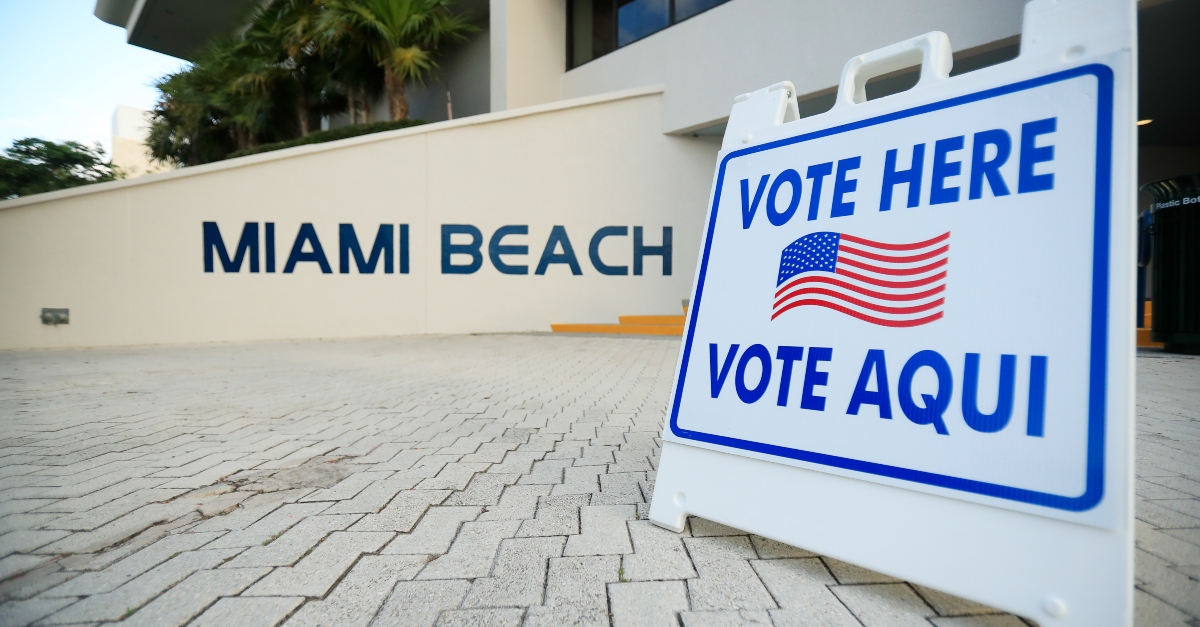
Getty Images: “A sign directs voters to a polling location during the Florida presidential primary on March 17, 2020 at Miami Beach City Hall in Miami Beach, Florida.”
A federal judge on Sunday ruled the Florida poll tax unconstitutional. The court held that a state “may disenfranchise felons and impose conditions on their reenfranchisement” but said that these conditions “must pass constitutional scrutiny.”
“Whatever might be said of a rationally constructed system, this one falls short in substantial respects,” wrote U.S. District Judge Robert L. Hinkle in a 125-page opinion.
HUGE: Court just declared #Florida’s conditioning voting rights restoration on payment of fines & fees #unconstitutional. It’s wealth discrimination and violates due process, plus a kind of poll tax under 24th Am. Will impact hundreds of thousands. #Amendment4 pic.twitter.com/EWOgZiwUGK
— Chiraag Bains (@chiraagbains) May 24, 2020
“This order holds that the State can condition voting on payment of fines and restitution that a person is able to pay but cannot condition voting on payment of amounts a person is unable to pay or on payment of taxes, even those labeled fees or costs,” wrote Judge Hinkle.
A majority of Florida voters supported Amendment 4 in the 2018 midterm elections—which gave most felons their voting rights back after they served their time. The exceptions were for murder and a felony sexual crime. The GOP-led legislatures and Gov. Ron DeSantis (R) passed a law prohibiting former felony defendants from voting if they couldn’t pay their fines or fees.
“The State of Florida has adopted a system under which nearly a million otherwise-eligible citizens will be allowed to vote only if they pay an amount of money,” the Hinkle wrote. “Most of the citizens lack the financial resources to make the required payment. Many do not know, and some will not be able to find out, how much they must pay. For most, the required payment will consist only of charges the State imposed to fund government operations—taxes in substance though not in name.”
As part of the ruling, the judge issued an injunction.
“The injunction provides, in effect, that an advisory opinion cannot rely on unconstitutional grounds for asserting ineligibility,” Hinkle explained. “The injunction sets no deadline for the Division to provide an advisory opinion—there is no deadline under state law—but the injunction allows an individual to go forward with registration and voting after 21 days, unless and until the Division provides an advisory opinion showing ineligibility.”
The law was previously enjoined, but only for the 17 named plaintiffs.
[Image via Cliff Hawkins/Getty Images]